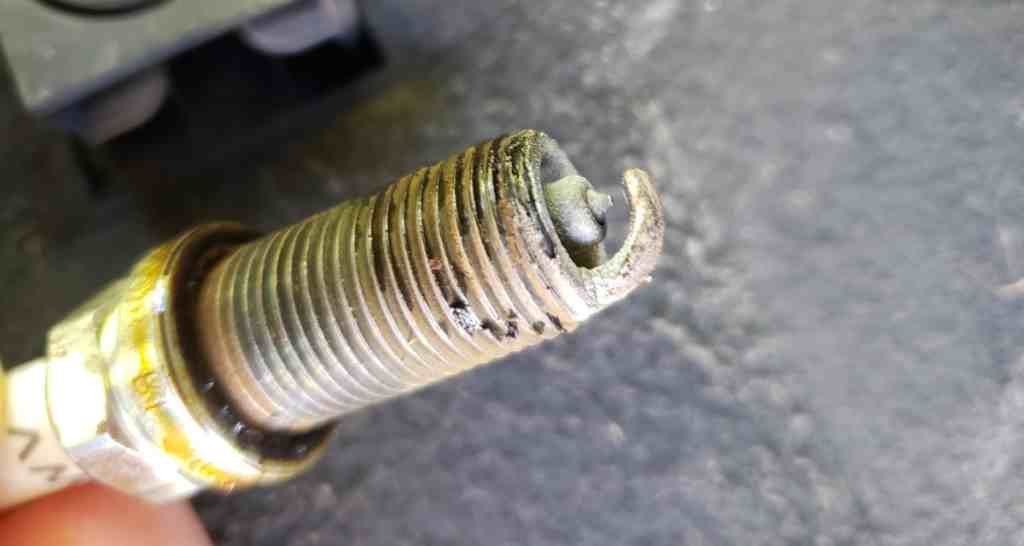What to Do After Changing Spark Plugs [10 Things]
What to do after changing spark plugs
Spark plug changes should be carried out frequently because they have such a substantial impact on the car’s overall performance and condition. Even though many customers have previously changed their spark plugs, they sometimes still experience some problems. So, it is necessary to know what to do after changing spark plugs and also know some potential problems that may arise after doing so.
Since the effectiveness of your spark plug is crucial to the operation of your ignition system, you generally have to monitor and replace them when necessary.
What to do after changing spark plugs

Drivers who experience minor problems with the condition and operation of their car usually replace the spark plugs. However, even after changing the spark plugs, some customers still face problems. It’s thus necessary to perform the following listed after the spark plug change.
Check if the car will start
Congratulations on being proactive and doing the repair yourself! Start your engine after changing your spark plugs to ensure everything is operating as it should. If your engine starts up without a problem, congratulate yourself on a job well done.
But if your car won’t start, inspect if any plug wires run straight from the coil or distributor down into the spark plugs and see if they are fastened firmly.
Additionally, you can do a diagnostic and get a visual representation of the outcomes. View a diagram showing the wiring connections in your car. It’s possible that you didn’t connect the cables properly.
Check if the car is having a hard start
After removing and changing their spark plugs, some drivers have experienced trouble starting their cars. The cause of this can be a damaged spark plug. Per CARFAX, Inc., an engine that cranks for longer than usual before starting up could mean “trouble with one or more spark plugs”.
Listen for unusual engine noise
After changing your spark plugs, listen for any rattling or knocking sounds. These sounds are produced by a misfiring spark plug. This leakage will be brought on by issues with the combustion process, such as damaged pistons.
These noises are brought on by misfiring spark plugs because moving pistons require high velocities, thus, the issue could be caused by a faulty spark plug.
Check if you experience low fuel efficiency
Maybe you’ve seen that your fuel efficiency isn’t improving. The spark plugs in a car are mostly responsible for good fuel economy. The fuel efficiency of your car has probably improved if you have changed the spark plugs. But if yours gets worse, then you may need to replace the spark plugs. E3 Spark Plugs confirm in their publication “Knowing When to Change Your Spark Plugs” that bad spark plugs can cause your ride’s fuel economy to decrease by up to 30%.
Check the performance level
You can look out to see if your car’s performance has not changed after changing the spark plugs. If your spark plugs aren’t functioning properly while you accelerate or change gears, your engine’s performance will continue to decrease. If this is your case, have your mechanic recheck the plugs.
Watch out for rough engine idling
If your spark plug is new, your idling ought to be smooth. Make sure your car starts without a problem. Now that you have a new spark plug, you shouldn’t have any more trouble starting your car.
View your dashboard
Even though your engine starts up well, your dashboard may display an error code. In this instance, grab your OBD reader and use it to identify the problem. When your car is running and the check engine light flashes frequently, there could be a cylinder misfire, so you should turn the engine off, get back in, and double-check your work.
Check if the engine is misfiring
It’s likely that the spark plugs you recently changed are the wrong kind for your car if they are already misfiring. Each spark plug is made for a particular engine and comes in a variety of sizes and forms.
Another possibility is that the new plugs are flawed. If you suspect this to be the case, return the items to the place of purchase and request a refund or replacement.
Notice the acceleration of your car
Even though you just changed the spark plug, your car does not respond as quickly as normal when you press down on the gas pedal. This could also result from other problems, such as soiled fuel injectors, faulty oxygen sensors, or a malfunctioning fuel pump. Before purchasing new spark plugs, ensure that your car has been analyzed by a skilled mechanic.
Consider a mechanic
If your engine won’t start after the spark plug change, you should call a mechanic. A spark plug change gone improperly might destroy your engine and result in additional expensive repairs.
Why is my car shaking after I’ve changed the spark plugs?
Sometimes, a shaking car could be due to faulty spark plugs. Nevertheless, other variables could contribute to the shakiness of your car, for instance, low fuel pressures or misfires.
However, if you have just changed your spark plugs and intend to keep them, you may have defective spark plugs. Failure of the idle air control valve is another possibility. Consequently, your engine may idle lower than usual.
Can new spark plugs cause a rough idle?
It is rare for new spark plugs to cause an inconsistent idle, but it is possible. Here, we are discussing a brand-new spark plug. Your car may be idling abnormally for numerous reasons.
However, there is a possibility that your spark plugs are damaged or have failed. It is likely advisable to have an expert examine it. Incorrect spark plug replacement may be the fault.
Should the ECU be reset after changing spark plug?
After changing their spark plugs, some individuals question if they need to reset their ECU. Several specialists advise against resetting the ECU. In some instances, it is also claimed that resetting the ECU after replacing the spark plugs is unnecessary.
Some may believe that resetting the ECU is a good idea, while others would claim that there are no benefits to doing so. Before resetting your ECU, it is essential to determine whether your car is due for an inspection.
Which spark plugs should I use in my car?
There are several distinct types of spark plugs available. Conventional spark plugs are the most popular variety.
This type features a threaded shell and a protruding metal electrode in the combustion chamber.
The racing spark plug is another type of spark plug. This type of spark plug has a longer electrode and a bigger surface area than standard spark plugs. Additionally, it is manufactured from a material that is more robust so that it can resist higher temperatures.
Iridium spark plugs are the third type of spark plug. This type has an extremely durable iridium-tipped electrode.
Additionally, it has a smaller diameter than standard or racing spark plugs, allowing it to fit into tighter areas.
Should I make the change to Iridium spark plugs?
Iridium spark plugs are an excellent option for those seeking a durable and long-lasting option. They are also an excellent option if your engine is difficult to start. Keep in mind that they are more expensive than other types of spark plugs while making your pick.
Consult a professional or the owner’s manual if you are uncertain whether the type of spark plug is appropriate for your car. They will be able to propose the appropriate spark plug for your vehicle depending on your driving history and typical driving conditions.
Regardless of the type of spark plugs you select, be sure to install them according to the manufacturer’s recommendations. Improper installation can result in damage.
Why would spark plugs misfire after changing them?
If your spark plugs misfire after replacement, it could be due to a malfunctioning ignition system. The engine’s gasoline is ignited by a spark produced by the ignition system.
If the ignition system is not functioning properly, the spark plugs may misfire. The ignition system can be examined by observing the spark at the spark plug wires. If there is no spark, the ignition coil or distributor may need to be replaced.
Conclusion
The most important thing you can do for your car is to change its spark plugs. For this reason, it is essential to maintain the spark plugs in your car.
On the other hand, some individuals keep asking what to do after changing spark plugs. Well, for safety purposes, simply check your new spark plugs and keep an eye out for any defects or damage.
- 10 Common Mistakes When Bleeding Brakes - September 12, 2023
- Dash Cam That Records When Car is Off [5 Best] - September 11, 2023
- How to Know if Dash Cam is Recording [10 Methods] - September 8, 2023




